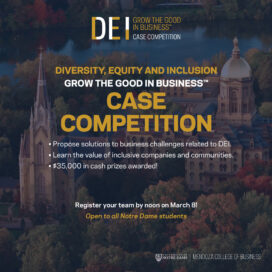Broadening business education from wealth-creation to solving global problems
Published: February 1, 2009 / Author: Carolyn Dame
In stark contrast to the financial meltdown, the deception of investment bankers, and the unseemly practices that induced the sub-prime crisis, a gathering at the United Nations sought to refocus business education away from a too-narrow agenda of wealth-creation. The gathering was held in early December 2008 at the 1st Annual Global Forum for Responsible Management Education in New York to discuss a broader perspective that considered the role of business in solving pressing global issues of poverty, disease, and conflict – a powerful reminder of the good that business can achieve.
Attended by senior administrators from academic institutions around the world, the forum provided a platform to advance PRME or the Principles for Responsible Management Education. These principles were established to advocate the concept of corporate responsibility and sustainability in management education. Participating institutions make a commitment to align their mission and strategy, as well as their core competencies – education, research, and thought leadership – with United Nation values embodied by the six principles. Actions encouraged under the initiative’s framework include curriculum development around the corporate responsibility agenda and research in support of sustainable management systems, as well as public advocacy and opinion leadership to advance responsible business practices. Currently, there are more than 200 business schools that are signatories of PRME. In addition, PRME is part of the U.N. Global Compact, a strategic policy initiative for businesses to adopt practices which uphold ten universally accepted principles pertaining to human rights, labor, environment, and anti-corruption.
PRME is an important counterpoint to the direction that business education has taken over the last 60 years. The analytical frameworks which serve as the conceptual underpinnings for business decision-making often turn human endeavors into competitive battles that glorify a winner-take-all mentality. PRME and the U.S. Global Compact re-orders priorities, shifting attention to the fundamental canons of human communities. First of all, human rights take precedence over all other interests. For instance, economic enterprises must serve people, not the other way around. Second, as a community, by definition, we flourish and advance collectively, not individually. This last point calls for “mutuality,” a balance between what a person or organization takes and what is given back.
The Global Compact and PRME initiatives allow business educators to do a better job of broadening the student vision. It is an opportunity to inspire our students, to enable them to see how they and business can become solutions to issues as big as poverty and peace, and as routine as a safe work environment, the promotion of a worker, and/or a pay-day with money left over for savings.
###
/news_and_events/news_articles/article/1118/broadening-business-education-from-wealth-creation-to-solving-global-problems




